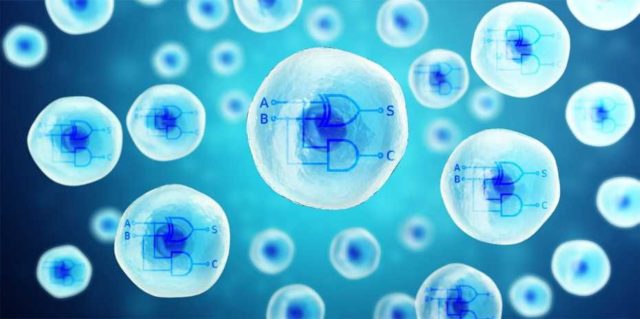MI weekly selection #327

Researchers create computers in human cells
The human body’s similarity to a computer inspired researchers at ETH Zurich to use CRISPR gene editing to build dual-core processors in human cells. The development could lead to the creation of biocomputers to diagnose and treat diseases.
Brain cells linked to sleep co-opted by general anesthesia
General anesthesia drugs work by taking over neural activity in the brain that induces sleep. The in-depth knowledge about the neural circuitry could lead to more effective medications for sleep disorders, say the researchers.
Infants’ immune disease treated with gene therapy
Ten babies with X-linked severe combined immunodeficiency, or “bubble boy” disease, who received a gene therapy that replaces a defective gene variant soon after birth were successfully treated and had normal growth and development without complications or side effects. The findings also showed healthy immune systems and vaccine response among treated infants, but more studies are needed to identify any long-term issues.
Dead pig brains somewhat revived
Scientists have restored or preserved some cellular function in brains from pigs that had been dead several hours. The experiment involved pumping a chemical cocktail into the brains for six hours after the pigs had been dead for four hours, then comparing them to untreated brains.
Interstellar debris may help speed up formation of planets
Some interstellar objects that were kicked out of their original star systems may help seed planetary formation elsewhere. Researchers surmise that such ejected debris may possibly speed up the formation process.